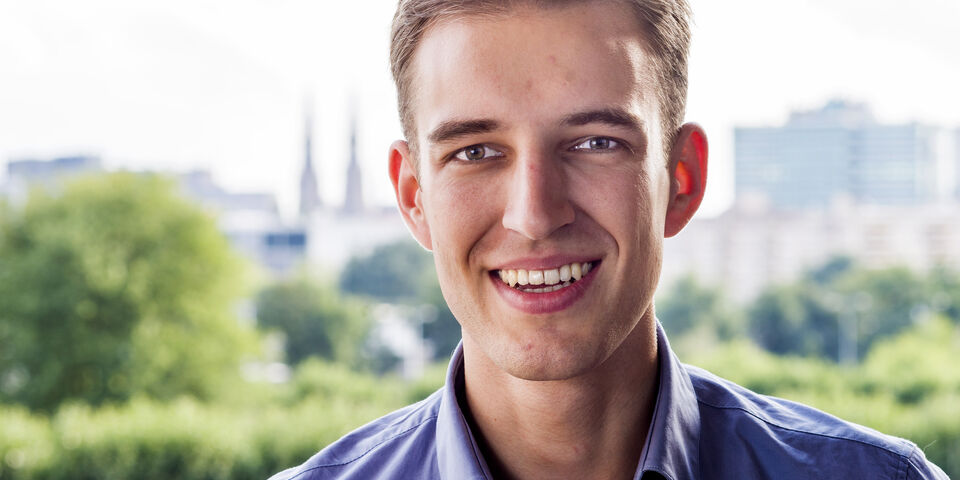Home Stretch | From havo to Harvard
Many diseases result from some kind of miscommunication in the complex interplay between genes, proteins and other molecules in the human body. This complexity often makes it difficult for biologists to see the wood for the trees. Computer scientist Kasper Dinkla helps them with his visualization software. It took the former havo pupil to the Mecca for modern science: Harvard University.
Kasper Dinkla is home for a week for his PhD ceremony, back from Massachusetts, USA, where he started a postdoc job before the summer. Not an obvious position for someone without a pre-university diploma, as he is ready to admit. “Truth be told, it’s absurd how things have gone. At secondary school I had great trouble learning languages, which led me to follow high school (havo). At the time I really could not see the use of languages, but I’ve now learnt how important language skills are. Language actually determines how you think.”
An essential part of his PhD research involved providing insight into the findings of biologists. This Dinkla did by visualizing the connections between genes and proteins in diagrams. “The trickiest bit was to obtain clarity about what biologists meant exactly. When your background is in a different discipline, it’s as if you speak another language. So that posed a big challenge.”
After having studied Computer Science at Fontys Hogescholen for a year, Dinkla transferred to the same study at TU/e. During his graduation the student from Eindhoven specialized in the visualization of complex data. Which he managed to do so well that it was followed by a statutory PhD. During this track he worked together with biologists from VU University Amsterdam and bioinformatics specialists from the Center for Mathematics and Computer Science (CWI) in Amsterdam. “They investigate how a specific virus promotes the development of cancer. They do so by measuring the production of all kinds of different proteins in the presence and absence of the virus.”
By means of Dinkla’s visual language the biologists discovered new connections in the measurement data which they had already analyzed. “On the basis of those insights they adjusted their hypotheses. This clearly demonstrates the added value of visualizations.”
As the final stage of his statutory PhD came within sight, it turned out that Harvard was looking for a postdoc in his area of expertise. Dinkla explains that this position dovetailed exactly with his background. “Which is the main reason they selected me”, he says with modesty. “I don’t believe that I am such an extremely good scientist.”
Nor does it mean a great deal to him that an adventure at the most reputed university in the world is invaluable for a successful scientific career. “To be honest, I’m not really thinking hard about a career and the future; I just have a genuine intrinsic drive to find answers to the questions posed by science. The feeling that my work contributes to medical science is tremendously motivating for me. In America I now cooperate a lot with scientists from the pharmaceutical industry and it makes me happy to see that in them as well.”


Discussion